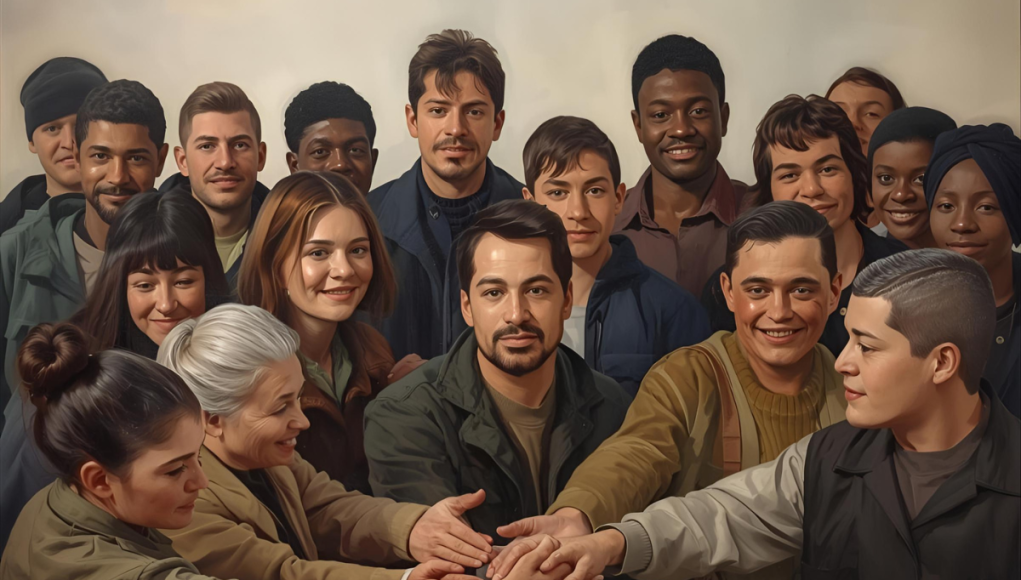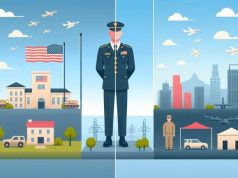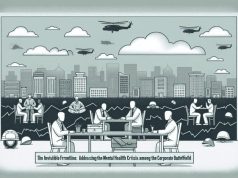When you step out of uniform and into civilian life, you don’t leave your identity behind—you bring it with you. But while your training, discipline and service matter, what often gets overlooked is who walks beside you. That’s the power of peer support and networking. For veterans across the U.S., building a strong network of fellow service-members, mentors and collaborators is one of the most effective tools for career reintegration and leadership growth.
In this post we’ll explore how veteran peer support, community networking, and mentorship can catalyze the next mission: thriving in civilian life. And we’ll show how one event—the Veterans Expo 2025—can help you meet your next mentor, teammate or collaborator.
Why “networking” feels different for veterans
Let’s face it: you didn’t join the military because you loved attending mixers. You joined because of purpose, structure, and a sense of mission. Transitioning into the civilian world means learning a new language—résumés, LinkedIn, networking events. That mismatch often leads to frustration. Research shows that veterans entering civilian employment face higher risk of isolation, lower perceived social support, and greater difficulty navigating “civilian rules.”
Peer support changes that dynamic. When you join a network of other veterans or civilian employers who truly understand the veteran experience, the rules of engagement start to shift:
- You don’t need to explain the culture—you already share it.
- The trust barrier drops, and you’re more likely to ask questions,.
- You get encouragement from someone who’s walked your path.
Studies of veteran peer-support programs show reduced isolation, higher engagement, and improved follow-through with employment and mental health services.
What veteran peer networks actually do for you
1. Translate your service into civilian credibility
You know what it means to lead a team, manage logistics, or respond under pressure. But civilian employers may not. In a peer network, another veteran can help you frame your military experience in business terms. They’ve done it. They get it. That translation matters when you’re doing job interviews or shifting industries.
2. Provide emotional and practical support
Career reinvention isn’t just about skills—it’s about the journey. Veterans often face identity shifts, mental-health stressors, and an ingrained “go it alone” mindset. Peer support creates a safe space to talk openly, ask for help, and get feedback from someone who truly understands. Meta-studies find peer-to-peer veteran support boosts help-seeking behaviour and reduces stigma.
3. Create access to opportunities you didn’t know existed
When you’re part of a veteran network, you’ll hear about job fairs, mentorship programs, and training cohorts before they’re widely advertised. You’ll meet veterans who have already joined the industries you want to enter. That opens doors. And events like the Veterans Expo 2025 bring that access into one place.
4. Build leadership for tomorrow
Today’s veteran network is more than reunion stories—it’s incubating tomorrow’s veteran-leaders. Veterans who mentor peers become role models. They shift from service taker to service-giver. That shift builds purpose and positions you as a leader in civilian organizations.
Real-world stories: peer support in action
Consider this scenario: A veteran, newly separated, struggles to articulate their military experience on a civilian résumé. Through a veteran-peer mentorship circle, they are paired with a former service-member who now works in operations at a Fortune 500 company. Together, they revise the résumé, practice interview scenarios, and identify a training certificate that aligns with their logistics background. A month later, the veteran lands a role in supply-chain management. Their peer mentor remains part of their network.
This isn’t fiction—it’s exactly what peer-support frameworks in veteran employment programs are replicating.
Another example: A group of veterans meet monthly (virtually) through a veteran-led club focused on entrepreneurship and tech. One member posts a job opening at his startup; another attends a virtual workshop and secures a scholarship for a coding boot-camp; a third finds a veteran-friendly employer among the network connections. The momentum builds because the network is not passive—it’s active, structured, persistent.
How to tap the network effect as a veteran
Here are practical steps to unlock the power of peer networking and mentorship:
Step 1: Join veteran-only professional groups
Look for groups on LinkedIn, veteran-owned Slack/Discord channels, or niche platforms like RallyPoint (often called “LinkedIn for veterans”). Engage by asking genuine questions, offering your experience, and connecting with fellow veterans.
Step 2: Seek a mentor and offer to be a mentee
Find someone who has walked your path or your desired path. Ask for 20-30 minutes of time per month. Be deliberate: bring a résumé draft, a goal for the meeting, or a challenge you’re facing. Then pay it back—offer to mentor someone newer, or share a tip you learnt. Mentorship strengthens the whole network.
Step 3: Participate in peer-led cohorts or study groups
If you’re going through training or earning a certification, do it with other veterans. Peer groups accelerate learning and provide accountability. Research shows veteran peer-cohorts improve engagement and outcomes.
Step 4: Attend veteran-specific career events
Generic job fairs are hit-or-miss for veterans. Events designed exclusively for veterans bring the right employers, the right mindset, and the shared experience. That’s precisely what the Veterans Expo 2025 offers: networking, peer conversations, workshops, and employer-veteran connection.
Step 5: Build your network into action
Don’t just collect contacts—create action. Follow-up with a peer you meet: send a thank-you note, set a next-step meeting, share a resource. The network effect compiles when you activate each node of your network: you, your peer, your mentor, your collaborator.
Why employer and veteran-leader engagement matters
Peer support isn’t just for job-seekers—it benefits employers, too. When employers invite veteran peer-leaders into onboarding and mentorship roles, they increase veteran retention and job satisfaction. A literature review of veteran peer-support staff found that veteran‐peer roles improved engagement in employment programs.
Similarly, veteran-leaders—those who’ve walked the transition path and now guide others—are invaluable. They understand both worlds (military and civilian) and can act as translators. They build bridge-people. This network of veteran-leaders fuels a new generation of veterans who are not just participants—but drivers.
The Veterans Expo 2025: Your network’s launchpad
Imagine walking into a virtual room packed with veterans, veteran-support nonprofits, employers who actively recruit for veteran talent, and mentors who’ve done what you’re doing now. That’s what the Veterans Expo 2025 is designed to deliver.
- Meet mentors: Rotate through small-group sessions with veteran-leaders who can guide your next step.
- Find peers: Join breakout networking rooms by industry or interest (tech, logistics, leadership, entrepreneurship)
- Collaborate: Connect with other veterans starting businesses, looking for partners, or sharing creative missions.
- Explore careers: Engage with companies that value veteran peer-leaders, veteran-friendly culture, and embrace veteran networks.
This isn’t just another job fair—it’s a networking ecosystem built for veterans to rise together.
Find your next mentor, teammate, or collaborator — virtually — at Veterans Expo 2025.
A mindset shift: from isolation to inclusion
The journey from military service to civilian career can be lonely if you treat it as a solo mission. But what if you flipped the model? What if you joined a cohort, found a mentor, and built your network like a squad moving forward together?
Peer networks change mindset:
- Instead of “I need help”, you think “I connect with people who’ve already been here”.
- Instead of “I’m reinventing myself”, you say “I’m building on what I already am, with others”.
- Instead of “Who will hire me?”, you ask “What value can my veteran-network and I bring together?”
That shift matters—not because networking is trendy, but because retention, performance, and satisfaction improve when veterans feel connected, supported, and in action. The data backs this: peer-support programs reduce isolation, improve engagement, and help the social dimension of reintegration.
Final thoughts: Your next mission starts now
The network effect isn’t accidental—it’s built. You already have the skills, the experience, and the mindset. Now it’s time to plug into the right ecosystem, invite mentorship, build peer loops, and act. Your next mission may not involve a uniform, but it matters. It uses your leadership, your service, your resilience.
Join a network—join a peer cohort—join the Veterans Expo 2025. Because the next chapter isn’t just about landing a job—it’s about stepping into a leadership role in your civilian career, supported by those who know your journey.
Find your next mentor, teammate, or collaborator — virtually — at Veterans Expo 2025.
Let’s build your network. Let’s build your future. Together.
Read more Work stories……


























